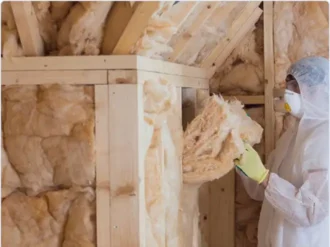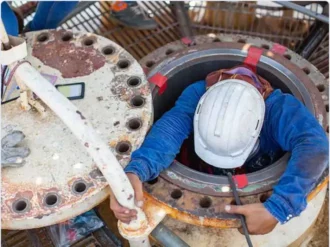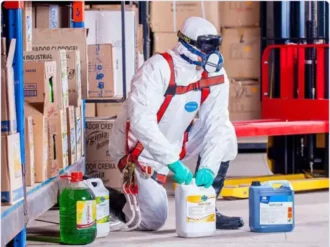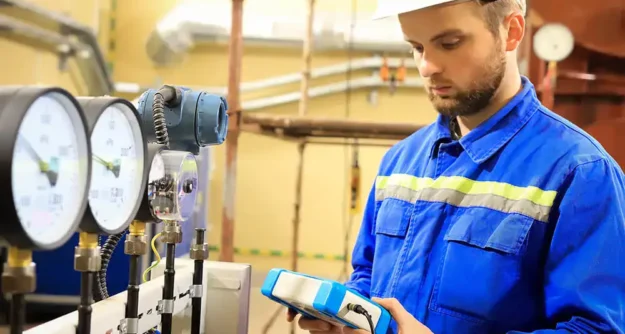Introduction
The risk of personal injury during pipeline work or maintenance is much higher than on other job sites due to the presence of high-pressure equipment, heavy suspended loads, and even on-site weather conditions. To reduce the number of accidents, it is vital for pipeline maintenance staff to receive adequate safety training designed to help them understand the full extent of their occupational hazards, as well as the necessity for security protocols.
Potential Hazards
Some of the most persistent risks associated with pipeline maintenance include:
Dangerous Chemicals.
Maintenance personnel will often deal with material spillages, either in power plants on when they’re out in the field. Although clean-up equipment should always be present, as per safety protocols, accidental exposure to pipeline contents is a likely possibility. Failing to follow procedures or use the necessary equipment will further increase the possibility of damage to personal health and/or property. Some of the chemicals in pipelines can be extremely dangerous, especially when they carry flammable, toxic or explosive contents, such as petroleum or gas.Musculoskeletal Disorders.
Pipeline servicing often involves the delivering and unloading of heavy equipment, substantial loads, or the pipes themselves. In these cases, swinging cargo and lifting injuries are likely, which is why a thorough risk assessment procedure must be in place throughout the entire process. Improper handling of cargo will expose workers to a variety of musculoskeletal diseases (MSDs), which can only be avoided if employees are made aware of appropriate handling and lifting techniques. The latter will help them decide on the best way to maintain control of loads when moving or lifting is involved.Asbestos.
To guarantee a high level of insulation, asbestos continues to be used in the manufacturing of certain pipes and auxiliary equipment. Asbestos-containing materials tend to be more frequent when underground utility pipes are concerned, such as hot-water systems in residential areas. Due to its highly toxic nature, exposure to asbestos will quickly lead to respiratory complications and even lung cancer.Confined Spaces.
Whether it’s working on underground pipes, using manholes to get to servicing stations, or entering large tanks to confirm complete discharge, pipeline maintenance workers will have to deal with confined spaces on a regular basis. Some of the most pressing hazards associated with these enclosures include lack of oxygen or ventilation, being trapped due to a single entry/exit point, instability, but also fires or explosions.
Incident Prevention
Working in pipeline maintenance is a hazardous occupation, which is why serious safety training will be required before employees can go out on the field or handle certain duties in plants. The only way to decrease the likelihood of injuries and damage to personal health or property is to provide employees with appropriate safety courses.
Being able to correctly assess the dangers associated with various pipeline maintenance tasks is instrumental towards preventing accidents. In addition, appropriate barriers and/or mechanical aid ought to be used for moving heavy loads and handling dangerous materials. For example, personal protective equipment is often the only barrier that stands between the worker and a life-threatening chemical hazard.
With adequate safety training, pipeline maintenance personnel will be able to make the right decisions in order to protect heir own health, as well as that of their co-workers and of the public.
Recommended Safety Courses



What You Can Do to Stay Safe
The only way to stay safe when working as part of a pipeline installation or maintenance crew is to undergo the necessary safety training, which can ensure that you are aware of the hazards commonly associated with this line of work. Canadian employers are legally required to provide complete and thorough safety courses for their personnel.
Prospective job candidates are also able to complete safety courses such as the ones mentioned above prior to attending an interview. Aside from facilitating a better understanding of the risks associated with pipeline maintenance, the courses are also known to improve one’s odds of getting hired.
For a comprehensive list of safety courses best suited for pipeline maintenance, please visit our Waste Management industry page.

